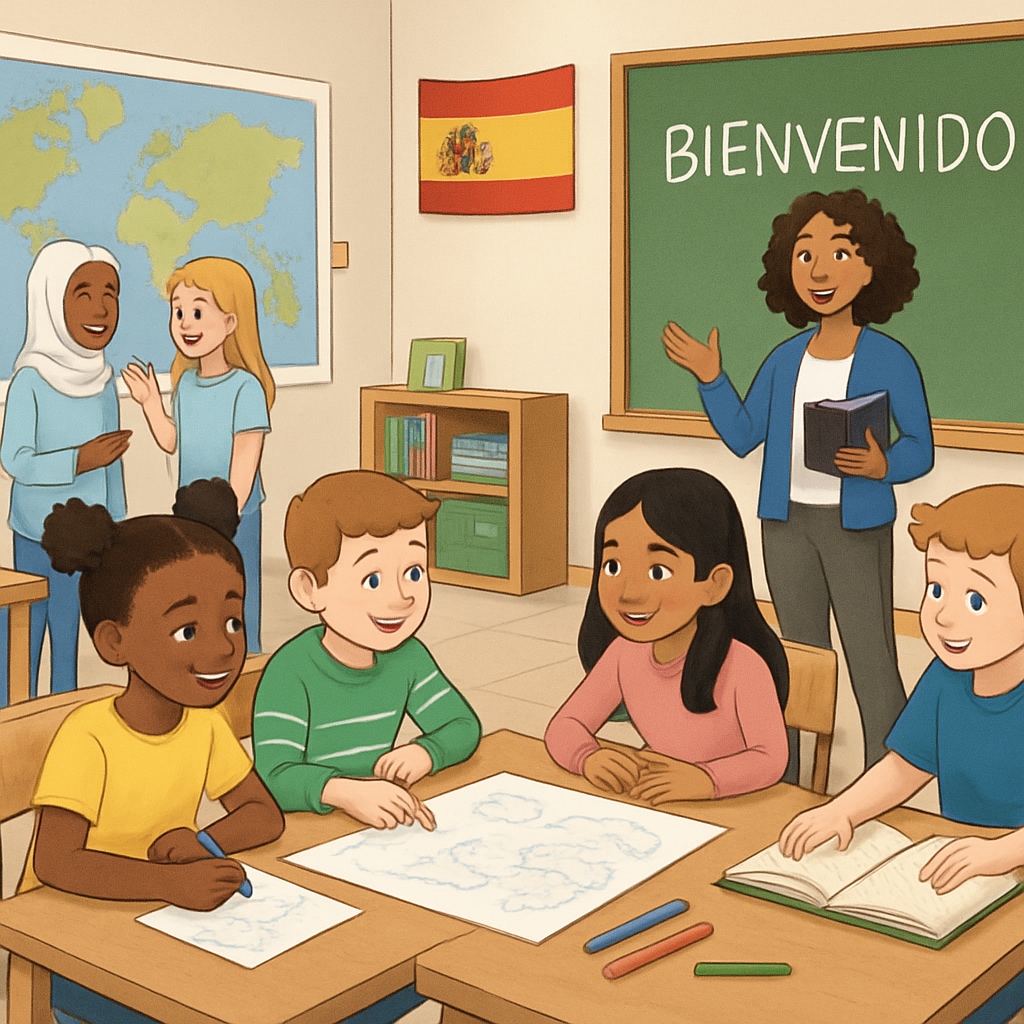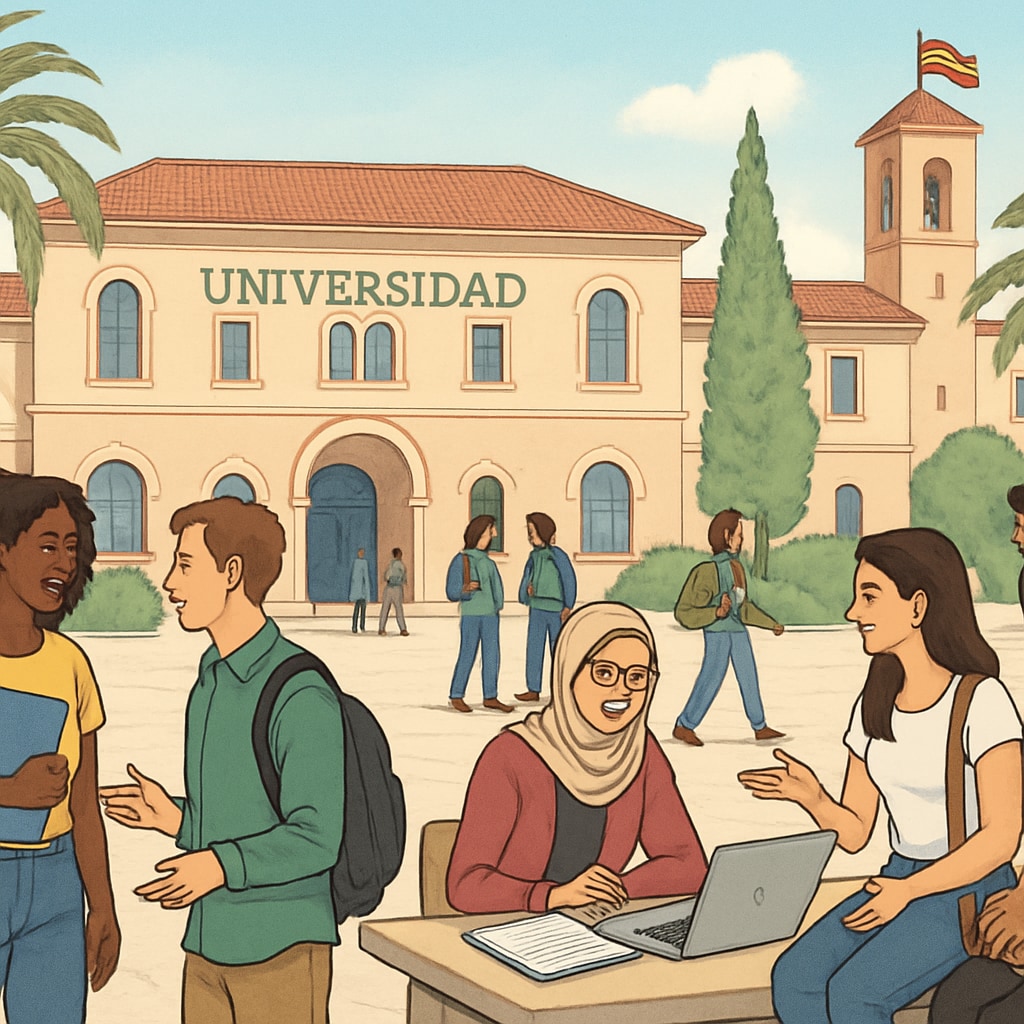For those considering studying abroad, pursuing a master’s degree in Spain presents a unique opportunity to engage with a vibrant cultural and educational landscape. Spain not only offers high-quality higher education but also boasts a K12 education system that provides valuable insights for international families exploring cross-cultural schooling options. This article delves into the distinct advantages of Spain’s educational model, highlights adaptation challenges, and offers actionable advice for families considering this academic and cultural journey.
Understanding Spain’s K12 Education System
Spain’s K12 education system is renowned for its inclusive and well-rounded approach. The curriculum emphasizes a balance between academic excellence, creativity, and personal development. Public education is free and compulsory for children aged 6 to 16, with options for private and international schools catering to diverse linguistic and cultural needs.
For international families, the availability of bilingual and international schools is a significant advantage. These institutions often teach in English, Spanish, or other major languages, providing a seamless transition for children adapting to a new environment. Moreover, Spanish schools embrace a collaborative learning model, encouraging teamwork and critical thinking skills.

Studying in Spain: Master’s Degree as a Gateway
Pursuing a master’s degree in Spain can be a transformative experience, especially for international students with families. Spanish universities are known for their research-oriented programs, affordable tuition, and global recognition. Degrees in fields like business, arts, and technology attract students worldwide who are keen to benefit from Spain’s academic reputation.
In addition, earning a master’s degree in Spain allows students and their families to immerse themselves in the country’s rich cultural heritage. This experience can ease cultural adaptation, as exposure to local traditions, language, and lifestyle fosters a sense of belonging. For example, participating in community events or enrolling children in local schools can significantly enhance integration.

Challenges of Cultural Adaptation and How to Overcome Them
While studying or relocating to Spain offers numerous benefits, cultural adaptation can still present challenges. Language barriers, for instance, are a common hurdle for international families. Although many schools offer bilingual education, a basic knowledge of Spanish is essential for navigating daily life.
Another challenge is understanding the differences in teaching styles. Spanish schools often emphasize holistic learning over rote memorization, which might differ from educational systems in other countries. Additionally, cultural norms such as relaxed schedules and the importance of socialization may require some adjustment.
To address these challenges, international families can take the following steps:
- Enroll in Spanish language courses to ease communication barriers.
- Research schools and choose those with strong support systems for foreign students.
- Engage in local activities to build a network and foster cultural understanding.
Practical Tips for Families Considering Education in Spain
If you’re planning to move to Spain for a master’s degree and wish to enroll your children in the local education system, preparation is key. Here are some practical tips:
- Visit Schools in Advance: If possible, tour potential schools to assess their facilities, curriculum, and cultural compatibility.
- Understand Visa Requirements: Ensure that all family members have the appropriate visas for study and residence.
- Explore Housing Options: Choose family-friendly neighborhoods with proximity to schools and universities.
- Leverage Community Support: Join expatriate groups or forums to connect with other families who have navigated similar experiences.
By preparing ahead of time, families can ensure a smoother transition into Spain’s education system and cultural environment.
Conclusion: A Cross-Cultural Journey Worth Taking
Studying in Spain for a master’s degree offers more than academic growth—it opens doors to cultural enrichment and global opportunities. Spain’s K12 education system, with its emphasis on inclusivity and personal development, aligns well with the needs of international students and their families. Despite the challenges of cultural adaptation, the rewards of this journey far outweigh the obstacles. With careful planning and an open mind, you can create a fulfilling cross-cultural experience for yourself and your family.
For more information on Spain’s educational system, you can explore resources like the Education in Spain on Wikipedia or consult the Spain Education Overview on Britannica.
Readability guidance: This article maintains short paragraphs and uses lists to summarize key points. Transition words such as “however,” “therefore,” and “in addition” ensure a smooth reading experience while limiting the use of passive voice and long sentences.


